U.S. blames Iran for ballistic missile attack on Iraqi Kurdistan

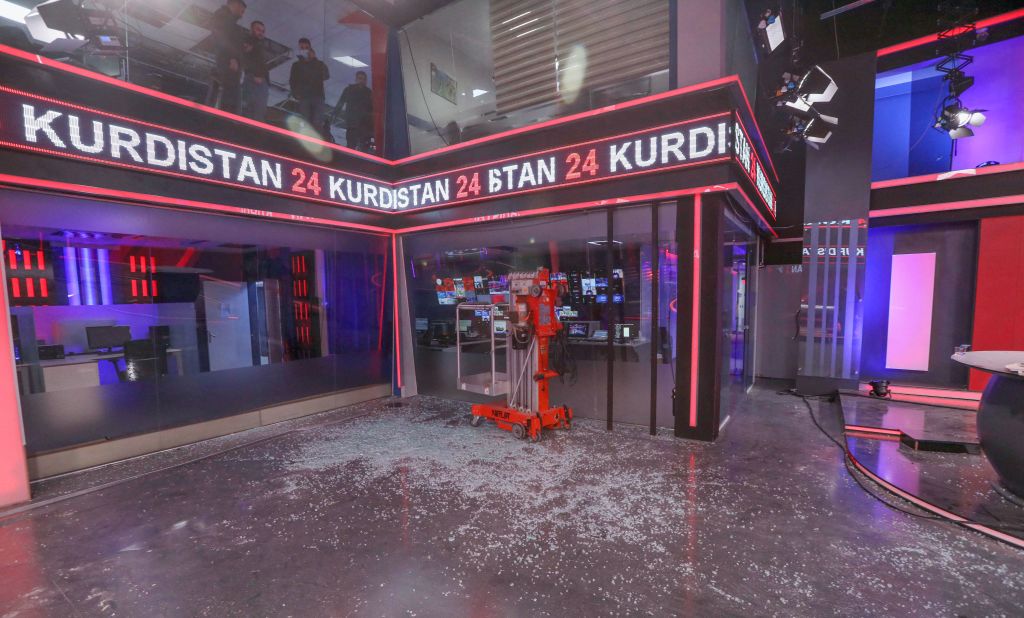
A free daily email with the biggest news stories of the day – and the best features from TheWeek.com
You are now subscribed
Your newsletter sign-up was successful
U.S. officials blamed Iran after a dozen ballistic missiles struck Irbil, the capital of semi-autonomous Iraqi Kurdistan, on Sunday, the BBC reports.
Two other officials, speaking on condition of anonymity, told The Washington Post that the missiles came directly from Iran.
The missiles landed near a U.S. consulate complex and damaged a local television news studio at around 1:30 a.m. local time, the Post reported. No one was killed or injured.
The Week
Escape your echo chamber. Get the facts behind the news, plus analysis from multiple perspectives.

Sign up for The Week's Free Newsletters
From our morning news briefing to a weekly Good News Newsletter, get the best of The Week delivered directly to your inbox.
From our morning news briefing to a weekly Good News Newsletter, get the best of The Week delivered directly to your inbox.
According to the BBC, the U.S. State Department denounced the attack as "outrageous."
Iraqi Prime Minister Mustafa Al-Kadhimi took to Twitter, calling the strike "an attack on the security of our people" and promising that Iraq's "security forces will investigate and stand firm against any threats."
Iran-backed Iraqi militia groups previously launched a wave of rocket and drone attacks against U.S.-aligned targets in Iraq and Syria in January. Per the Post, these strikes "did not cause casualties among U.S. service members and were clustered around the second anniversary of the U.S. decision to assassinate revered Iranian Maj. Gen. Qasem Soleimani."
A free daily email with the biggest news stories of the day – and the best features from TheWeek.com
Grayson Quay was the weekend editor at TheWeek.com. His writing has also been published in National Review, the Pittsburgh Post-Gazette, Modern Age, The American Conservative, The Spectator World, and other outlets. Grayson earned his M.A. from Georgetown University in 2019.
-
 Local elections 2026: where are they and who is expected to win?
Local elections 2026: where are they and who is expected to win?The Explainer Labour is braced for heavy losses and U-turn on postponing some council elections hasn’t helped the party’s prospects
-
 6 of the world’s most accessible destinations
6 of the world’s most accessible destinationsThe Week Recommends Experience all of Berlin, Singapore and Sydney
-
 How the FCC’s ‘equal time’ rule works
How the FCC’s ‘equal time’ rule worksIn the Spotlight The law is at the heart of the Colbert-CBS conflict
-
 How long can Nato keep Donald Trump happy?
How long can Nato keep Donald Trump happy?Today's Big Question Military alliance pulls out all the stops to woo US president on his peacemaker victory lap
-
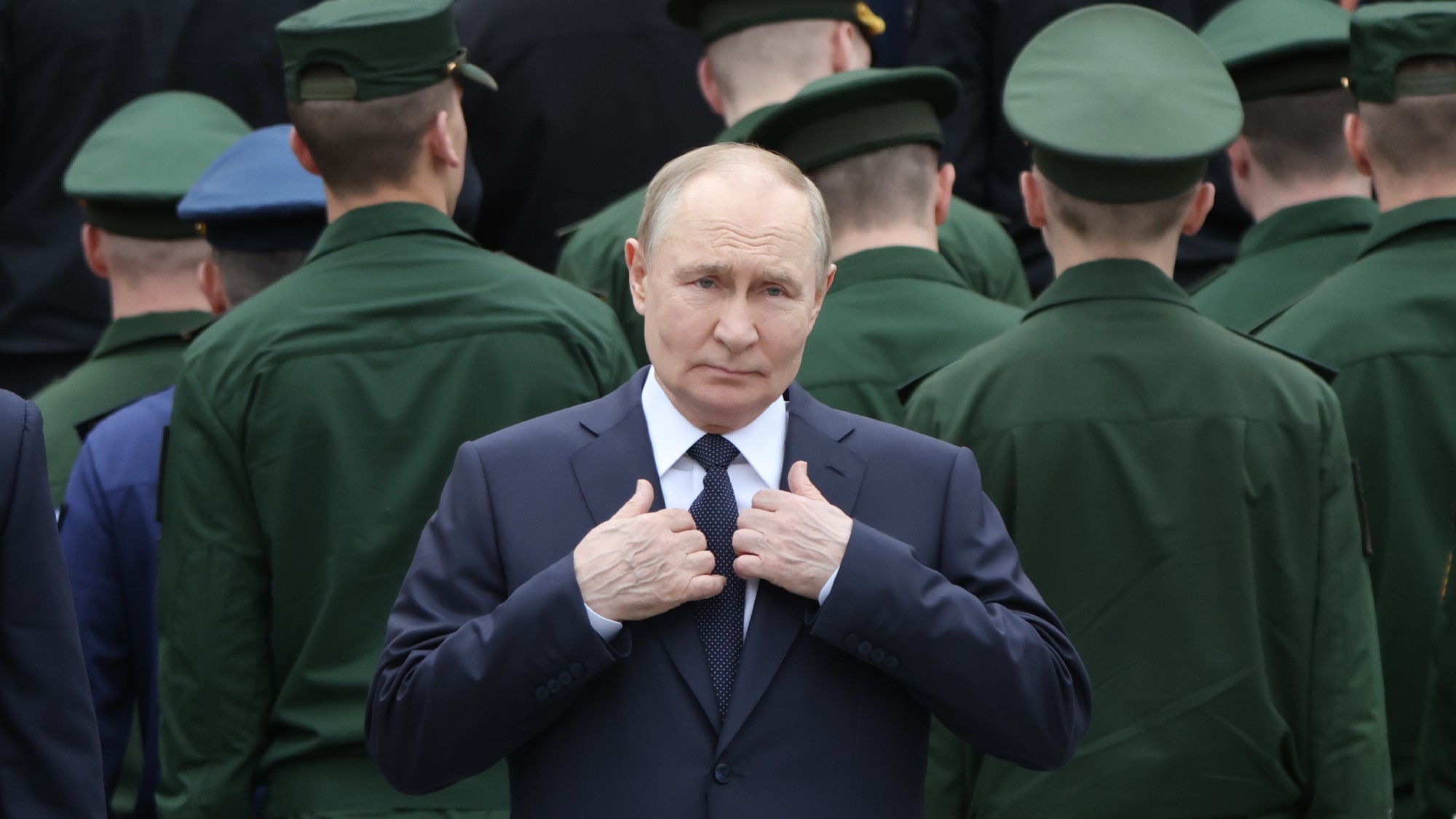 How far would Russia go for Iran?
How far would Russia go for Iran?Today's Big Question US air strikes represent an 'embarrassment, provocation and opportunity' all rolled into one for Vladimir Putin
-
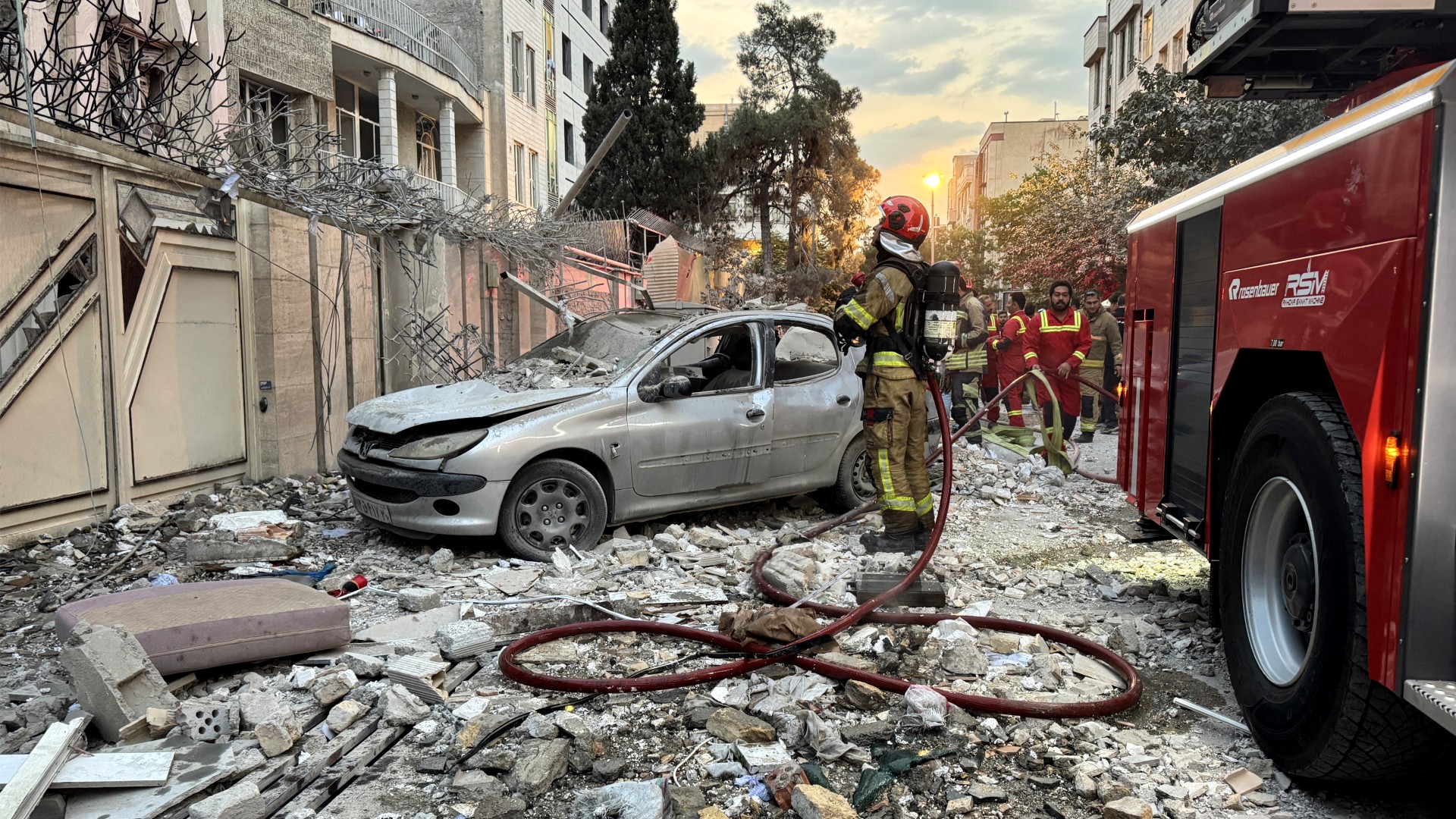 How the Israel-Iran conflict broke out
How the Israel-Iran conflict broke outThe Explainer Israel's strike on Iran's nuclear and missile programmes was years in the planning
-
 Will the UK get involved in the Israel-Iran conflict?
Will the UK get involved in the Israel-Iran conflict?Today's Big Question Keir Starmer is 'walking a tightrope' in helping Israel limit Tehran's nuclear capabilities without being seen to do so
-
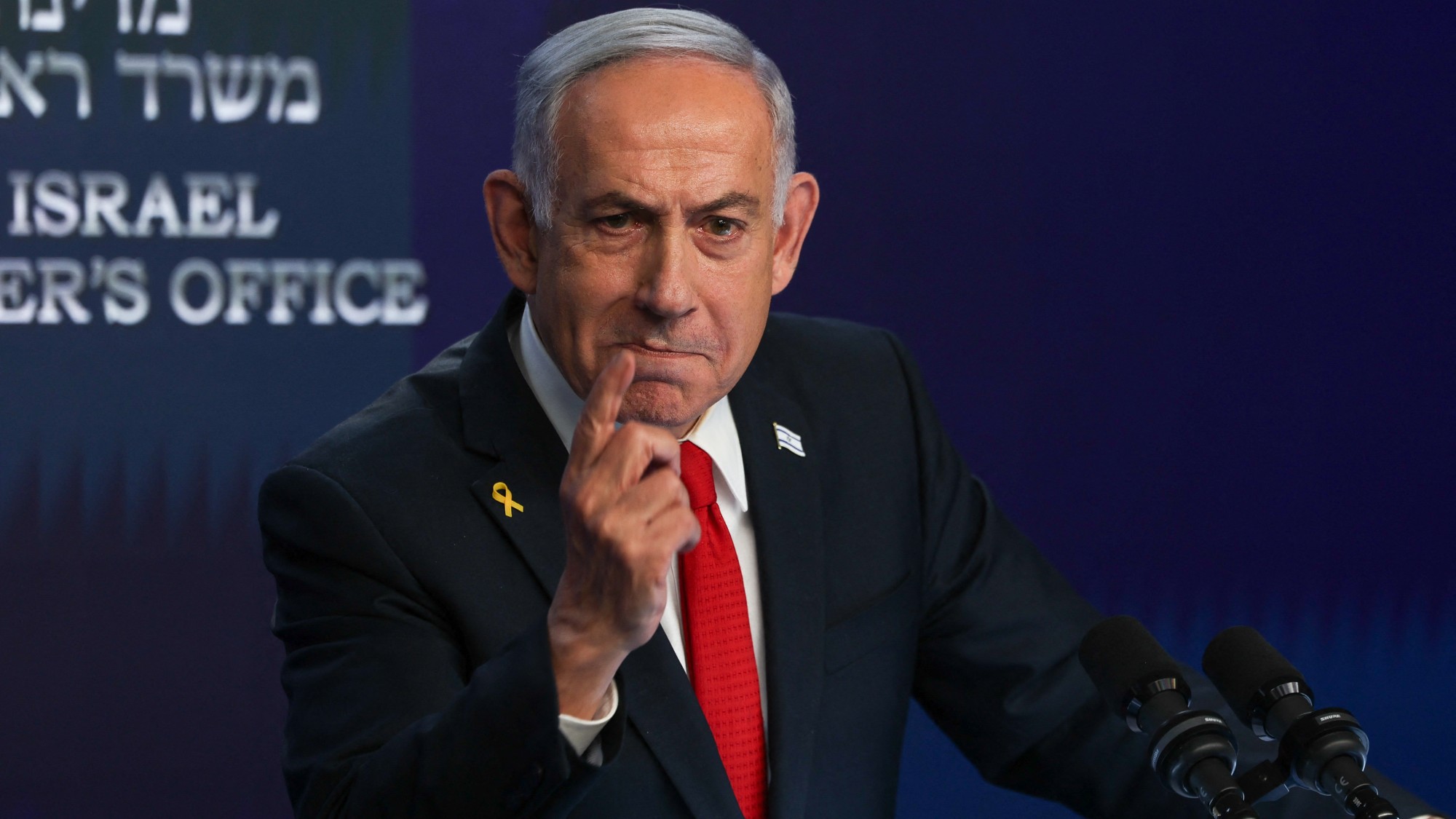 What happens if Israel attacks Iran?
What happens if Israel attacks Iran?TODAY'S BIG QUESTION Israel is 'ready to strike' and Tehran has plans for counterattacks against the US as nuclear talks appear deadlocked
-
 Russia and Iran 'up the ante' after meeting in Turkmenistan
Russia and Iran 'up the ante' after meeting in TurkmenistanThe Explainer Two nations talk up their closer ties but some in Tehran believe Putin 'still owes' them
-
 Israel's wars: is an end in sight – or is this just the beginning?
Israel's wars: is an end in sight – or is this just the beginning?Today's Big Question Lack of wider strategic vision points to 'sustained low-intensity war' on multiple fronts
-
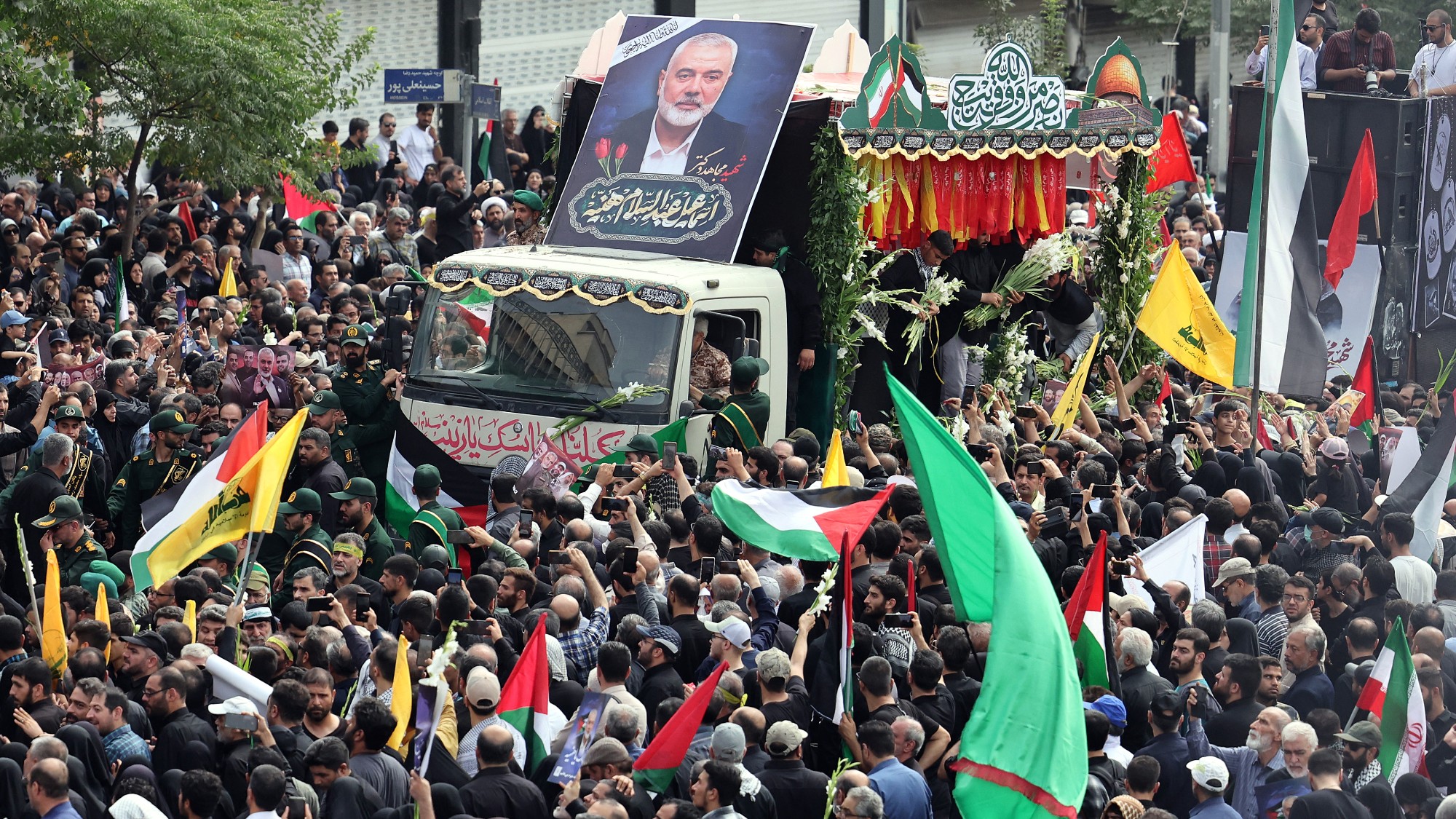 Iran and Israel: is all-out war inevitable?
Iran and Israel: is all-out war inevitable?Talking Points Tehran has vowed revenge for assassinations of Hamas and Hezbollah leaders, but Gaza ceasefire could offer way out
